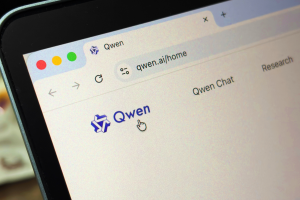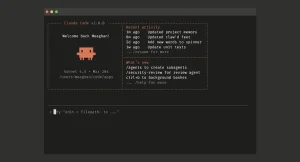Baidu’s Revolutionary Leap in AI: Challenging Giants

The AI landscape just witnessed a seismic shift. Baidu, China’s tech titan, introduced ERNIE 4.5, a model challenging the renowned GPT-4.5. The surprise? It costs just 1% of GPT-4.5’s model, yet promises enhanced performance. As AI evolves, Baidu’s stride signals a thrilling era.
Baidu’s new model is not just a tech breakthrough but a smart strategy. By undercutting competitors’ costs, Baidu is redefining the AI marketplace. This bold move could reshape tech dynamics, pressuring giants to innovate faster. These advancements redefine possibilities, offering fresh insights into AI’s future trajectory.
ERNIE 4.5: A Game-Changer
Baidu’s unveiling of ERNIE 4.5 marks a significant milestone in AI development. This model doesn’t just stand shoulder to shoulder with GPT-4.5, but claims superiority at a fraction of the cost. Its enhanced capabilities are set to revolutionize AI accessibility, potentially democratizing technology across various sectors.
Priced at just 1% of GPT-4.5, ERNIE 4.5 is a statement. It’s proof that innovation need not come with a price tag. AI enthusiasts and companies can now explore cutting-edge tech without breaking the bank. This affordability model could redefine how we perceive and integrate AI resources.
Beyond its competitive pricing, ERNIE 4.5 impresses with its powerful processing and adaptability across applications. From chatbot functionalities to complex data analysis, its potential use cases are vast. Baidu’s development strategy focuses on versatility, aiming to integrate this model across industries seamlessly.
Comparing Giants: Baidu vs. OpenAI
The battle between Baidu’s ERNIE 4.5 and OpenAI’s GPT-4.5 is one for the books. Both models showcase their prowess in language understanding and generation, but Baidu’s pricing gives it a notable edge. It’s a direct challenge to OpenAI, prompting a re-evaluation of pricing strategies in tech.
GPT-4.5 remains a formidable opponent, renowned for its nuanced ability to generate human-like text. However, Baidu’s entry into this space suggests a new principal contender has emerged. As both companies vie for the tech throne, consumers stand to benefit the most from these developments.
While OpenAI has dominated for years, Baidu’s strategic pricing and impressive performance are game-changers. This competition may lead to rapid advancements in AI capabilities, offering consumers better and more varied options. The future of AI, thus, promises to be even more dynamic.
The Rise of Multimodal Models
ERNIE 4.5 isn’t just about text; it’s about crossing mediums. Its multimodal capabilities mean it can handle tasks involving images and data alongside text, setting it apart in a competitive field. This flexibility ensures it’s not restricted to traditional AI applications.
Incorporating multimodal processing, ERNIE 4.5 caters to diverse market needs. Its application could range from content creation, enhanced virtual assistants, to improved data interpretation. This broadens potential use cases, highlighting Baidu’s understanding of evolving AI demands.
AI’s future lies in versatility, evident in ERNIE 4.5’s design. By supporting multiple input types, it offers a comprehensive suite of tools for developers and businesses alike. This shift towards multifunctional AI sets a new benchmark, encouraging innovation on different fronts.
X1: Redefining Reasoning Models
Baidu’s X1 model is another feather in its cap, offering reasoning skills rivaling DeepSeek’s R1. What sets it apart is its cost-effectiveness, priced much lower while promising high efficiency. This model is a testament to Baidu’s commitment to affordable innovation.
X1 represents a leap in reasoning technology, designed to process complex queries swiftly. This capability can transform customer service, AI tutoring, and expert systems. By bridging knowledge gaps affordably, X1 positions itself as a must-have tool in competitive industries.
The affordability of X1 is significant, reducing barriers for businesses seeking advanced reasoning AI. Baidu’s strategy revolves around offering high-quality tech at lower prices, potentially setting trends in pricing across the tech landscape. This approach broadens accessibility, fostering broader AI adaptation.
Free Access to AI Innovations
Baidu is not simply rolling out new models; it’s making them accessible. From April 1, a chatbot leveraging ERNIE 4.5 and X1 will be available at no cost. This move could democratize AI usage, allowing more people to experience top-tier technology firsthand.
By offering free access to its powerful models, Baidu is inviting users to engage with its technology. It’s a strategic effort to encourage adoption and gather feedback, which could guide future developments. This initiative might push other companies to rethink their accessibility strategies.
The Impact on Global Tech Dynamics
Baidu’s innovations are sending ripples through the tech world. At a time when AI integration is paramount, their cost-effective models could redefine global strategies. More companies might pivot towards affordable innovation, challenging established players in new ways.
The pressure on tech giants like OpenAI and Anthropic is palpable. Baidu’s aggressive pricing and innovative capabilities may prompt these giants to re-evaluate their offerings. This shift could lead to faster tech advancements, benefiting consumers with more choices and better deals.
With Baidu’s entry into high-powered AI, the stage is set for an exciting evolution. As competitors respond, consumers can expect more competitive pricing and enhanced technology. It’s a pivotal moment in tech history, promising significant changes in the AI landscape.
AI in Startups: A New Era
Y Combinator’s recent showcase demonstrated AI’s growing role in startups. With 80% incorporating LLMs, these companies are setting new benchmarks. Baidu’s affordable models could further empower these startups, offering tools that previously seemed out of reach.
AI is proving pivotal in scaling startups quickly. With fewer employees, companies are reaching impressive revenues, showcasing AI’s potential as a growth catalyst. As Baidu’s models enter the scene, more startups might leverage these tools for innovation and efficiency.
The Future of AI Accessibility
Baidu’s strategic pricing hints at a future where AI isn’t exclusive to the deep-pocketed. This approach might encourage more inclusive tech development, ensuring everyone benefits. It’s a leap towards breaking economic barriers in technology, fostering universal accessibility.
As AI becomes more affordable, we might witness broader adoption across various fields. From education to healthcare, these models can serve different purposes, enhancing life globally. Baidu’s initiative signifies a movement towards equitable tech advancement, setting a powerful precedent.
Preparing for an AI-Driven Tomorrow
Baidu’s ERNIE 4.5 and X1 symbolize not just technological prowess but a strategic shift in AI deployment. Their affordability initiates new conversations about AI’s role in our future.
These developments push the dialogue beyond technology, urging industries to rethink their models. As Baidu leads this charge, others will likely follow, setting the stage for revolutionary changes.
AI is rapidly evolving, and Baidu’s contributions are opening doors to innovative possibilities. This journey requires us to rethink, adapt, and harness these tools for a balanced, AI-empowered world.
Baidu’s strides in AI mark a pivotal shift, pushing the boundaries of innovation and accessibility. Their bold moves challenge norms, promising a future rich with possibilities, where technology serves everyone. As AI shapes tomorrow, Baidu’s contributions stand as benchmarks of progress, reshaping how we engage with technology.






